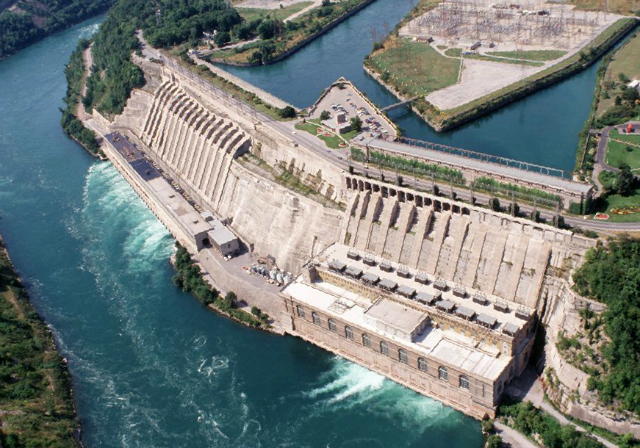The odds of a July rate hike from the Bank of Canada have dropped along with the Canadian dollar in recent weeks. Central banks in Canada and across the developed world are souring on growth prospects as trade tensions continue to heat up. NAFTA negotiations have deteriorated over the past two months, and relations between the United States and Canada have worsened.
All of these factors, combined with anxiety over the U.S.-China trade spat, have lowered the odds of a second rate hike this year. Utility stocks have been battered on the TSX since the rate hike in January. A dovish signal for the second half of 2018 may be good news in the near term. For the long-term, however, utilities remain one of the best bets for consistent dividend growth.
RRSP investors should be particularly drawn to the two stocks we will cover today. Both boast a wide moat and the promise of dividend-growth going forward. Let’s take a look.
Canadian Utilities Ltd. (TSX:CU)
Canadian Utilities is a Calgary-based subsidiary of Atco Ltd., and offers gas and electricity services. Shares of Canadian Utilities had fallen almost 14% as of close on June 20.
The company posted record adjusted earnings of $602 million, or $2.23 per share for the full-year in 2017. Investment and rate base growth was a big contributor. Canadian Utilities invested $1.7 billion in capital growth projects in 2017, with plans to invest an additional $5.4 billion from 2018 to 2020. This is expected to boost its rate base and bump up earnings going forward.
Canadian Utilities also boasts a quarterly dividend of $0.3933 per share, representing a 4.6% dividend yield. The company has delivered 46 consecutive years of dividend growth, the longest current streak on the TSX.
Hydro One Ltd. (TSX:H)
Hydro One stock was up 4.8% month-over-month as of close on June 20. The company has had a hectic spring, to say the least. Investors are likely waiting to see what the new PC leadership will do after leader Doug Ford signalled his intention to push out CEO Mayo Schmidt and other board members during the Ontario election campaign. This political drama has overshadowed some good news in the first quarter.
Hydro One saw net income rise 33% year-over-year in the first quarter to $222 million. Adjusted net income was $210 million compared to $167 million in the prior year. The company saw its earnings surge on the back of seasonal weather, controlled operating costs, and a decision from the Ontario Energy Board (OEB) on transmission rates.
Hydro One also hiked its quarterly dividend by 5% to $0.23 per share, representing a 4.4% dividend yield. The biggest short-term risk at Hydro One is political, but it would be a dangerous move for the “pro-business” PC party to disrupt a $12 billion company. The new government will have other priorities, and investors should expect the incendiary rhetoric against Hydro One to fade as Ford settles into his role as leader.







